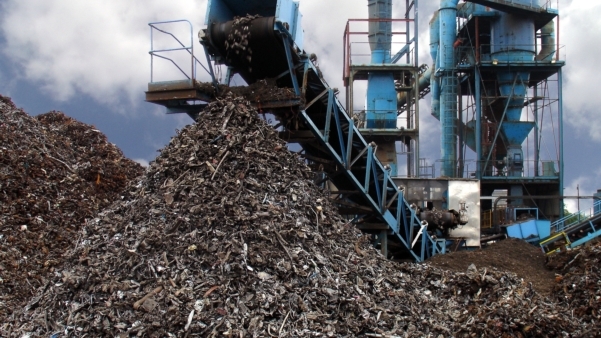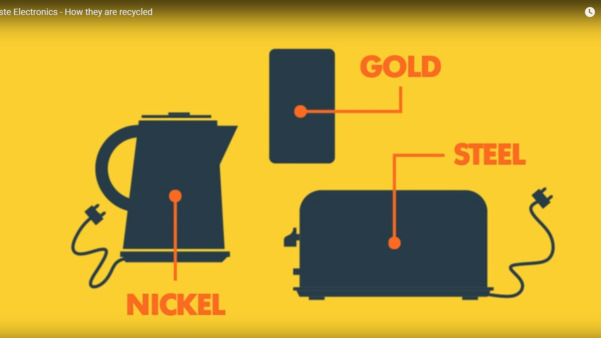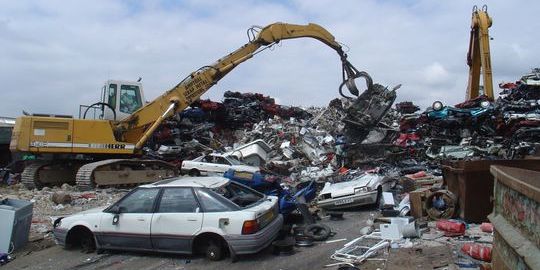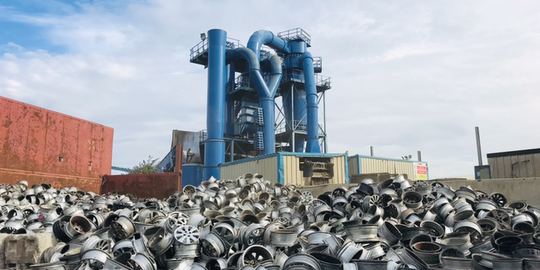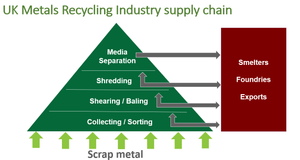
Metals recycling is a pyramid industry that includes many small, family-owned companies, as well as large, international businesses. Metal recyclers, large and small, carry out a range of functions in order for scrap metal to be ready for recycling. These include:
- Collecting: Whether via trade at a metal recyclers site, known as gate trade, collected from a persons house or business premises, via a skip collection, or via a household waste and recycling centre, metal items are collected and/or bought, often based on the weight of the metal.
- Shearing: Some metal recycling sites may have a shear in order to reduce large metal items by cutting, ready to be processed further, either on that site, or moved to another.
- Baling/compacting: Metal can be placed in a baler or compacter, making it smaller in size, which make the metal easier to handle and transport.
- Shredding: Metal can be reduced to fist-sized lumps via a shredder/fragmentiser. For example, a car can be shredded in less than ten seconds. Many shredders in the UK are located near docks so that shredded metal can be placed on ships ready to be exported to a different country.
- Sorting and media separation: Once reduced in size, even to very small sizes, metal can be further sorted using innovative sorting and media separation techniques and technologies to be further separated from other metals and non-metallic materials to improve the purity of the scrap metal ready for smelting into new metal.
- Granulation: Metal can also be made into particles of varying sizes via a process called granulation. Metal, often cable, is fed in, and this results in small granules of metals. Cables, for example, can either be stripped, or some granulators can separate cable from its plastic casing.
- Trading: Trading is the buying and selling of metal, of which some firms specialise. Some metal is traded within the UK to make new metal, but most UK metal is exported to other countries.
A regulated industry
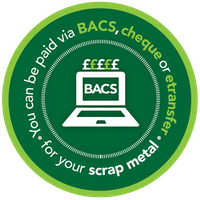
The metals recycling industry is highly regulated. From mobile collectors to large, multinational operators, all metal recyclers must be correctly licensed to operate legally. The licences include a Scrap Metal Dealers Licence and a Waste Carriers licence.
In England and Wales, the Scrap Metal Dealers Act was introduced in 1964, and amended in 2013. One key aspect of the amended Act was to make it illegal to pay cash for scrap metal.
The intention of the amendment was to create an audit trail in order to combat metal theft. Scrap metal dealers must also verify the identity of all sellers ensuring traceability and creating an effective audit trail of scrap metal transactions. Payment for scrap metal can be made by cheque, BACS or etransfer.
In 2015, the Air Weapons and Licensing (Scotland) Act 2015, followed suit and banned the payment of cash for scrap metal in Scotland.

